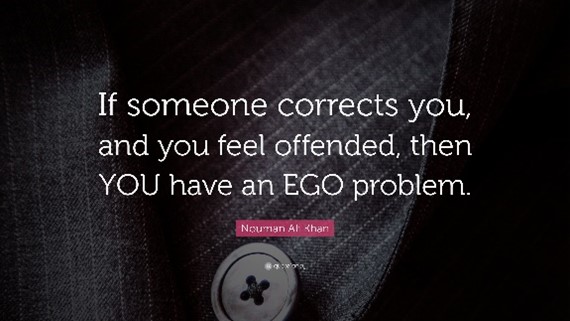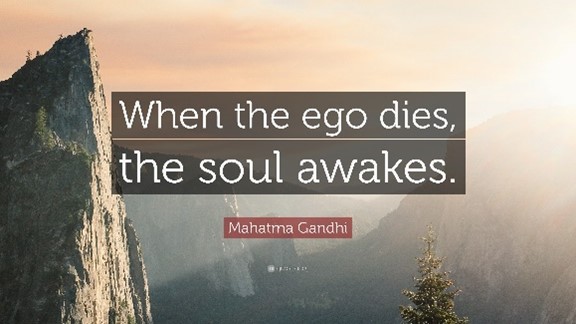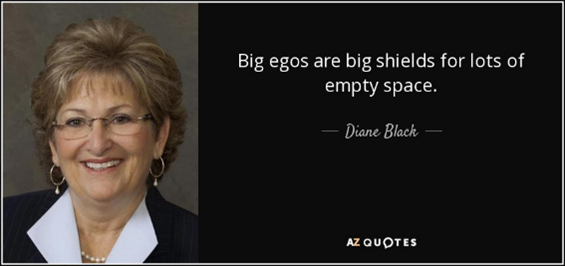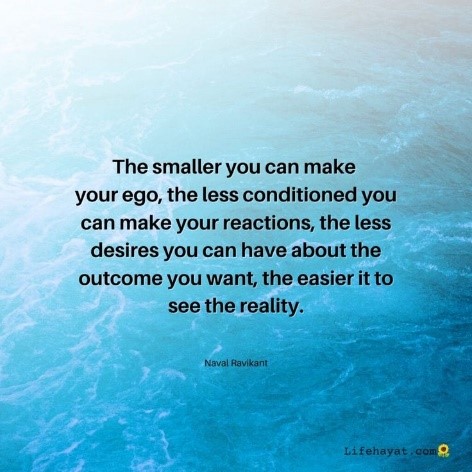I feel like ego is talked about a lot. Here are some quotes about our ego:




I don’t know about you, but I feel like 10 different people can talk about our ego, and they all seem to define it or think about it differently. In other words, I am not sure I have had clarity on what our ego is.
That is, until recently.
Why Focus on Ego?
When I read personal development books or articles and the ego is brought up, three main points are commonly made:
- We all have an ego
- Some people have a larger ego than others
- Our ego gets in the way of us being our best self
I have come to agree with these points.
And, I believe the following:
- The more clear we can get about what our ego is, the more we can rise above it
- The more we rise above our ego, the more we can be our best self
Laying the Foundation of What Our Ego Is
Ego is commonly referred to as a sense of self-importance, identity, and self-esteem.
But, I do not think that is entirely correct.
To understand what our ego is, I think it is helpful to understand a few foundational ideas:
- Our body has an internal operating system that largely nonconsciously and automatically dictates how we see and navigate our world.
(See the first quote above: when we are corrected, our body generally has a nonconscious and automatic response. Our response, whether healthy or less healthy, is dictated by our internal operating system.)
- People’s internal operating systems can vary in their cognitive and emotional sophistication.
(The lower the quality of one’s internal operating system, the more reactive, defensive, and self-protective they are. The higher the quality of one’s internal operating system, the more thoughtful, intentional, and value creating they are.)
- Our internal operating system is controlled by our body’s nervous system. And, our nervous system’s primary job is to direct us toward pleasure and away from pain, as well as keep us alive, and protect us.
- There are various factors the negatively impact our internal operating system, including our current culture, trauma (past or present), and neurodivergence.
(For example, neuroscientists have found that the more trauma one experiences, the more and stronger their body’s nervous system becomes wired for self-protection. They have a narrow window of tolerance and are generally more hypervigilant and/or dissociated).
- Adult development psychologists have identified that there are three adult development levels. At Level 1, our internal operating system is wired to fulfill the needs of safety, comfort and belonging (I want to stand in). At Level 2, our internal operating system is wired to fulfill the needs of standing out, advancing, and getting ahead (I want to stand out). At Level 3, our internal operating system is wired to fulfill the needs of contributing, adding value, and lifting others (I want to create value).
(When we are in Level 1 and 2, our primary focus is on ourselves—either standing in or standing out. It is only when we get to Level 3 that our focus is on something greater than ourselves, and usually on creating value for others.)
What is Our Ego?
With this foundation laid, I have come to understand our ego to be the wiring within our internal operating system that is focused on our self-protection as opposed to value creation. It is any of our natural, nonconscious, and automatic tendencies to choose us over creating value for others.
And, given Adult Development Theory, our ego can manifest in two different ways:
- It can cause us to seek our safety, comfort, or belonging
- It can cause us to seek standing out, advancing, and getting ahead
In my opinion, when ego is written about, it is generally referring to the second bullet point, but I believe the ego is equally related to the first bullet point. But, I do think that people who have an ego more focused on standing out, advancing, and getting ahead are more likely to engage in behaviors that harm others (acts of commission), while I think that people who have an ego more focused on safety, comfort, and belonging are more likely to engage in behaviors that more indirectly harm others or fail to create value for others when they had the chance (acts of omission).
Rising Above Our Ego
For me, this perspective is helpful because it helps me to better understand what our ego is, and it helps me better understand what is needed to rise above my ego.
The key to upgrading our body’s internal operating system is Vertical Development. And, at the core of vertical development is the need to heal our mind, body, and heart. In so doing, we refine and upgrade our body’s nervous system such that our body has less of a need to self-protect (lower ego) and a greater readiness to be a value creator.










3 Responses
Very helpful!
I like your perspective and analysis on EGO. If business leaders, politicians and individuals could get this under control, oh what a world we could have. The better we get at suppressing our ego, the more value we can create for others, therefore the more success we will have… and then we will have to get back to suppressing the EOG again.
Agreed! And, my belief is that if we can help more people awaken to the degree to which they are internally wired for self-protection, the easier it will be to help people and leaders to rise above their ego.